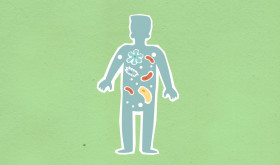
The realm of colorectal health and disease is profoundly influenced by a multitude of factors, among which environmental elements play a pivotal role. The discussion surrounding “Environmental Factors on Colorectal Health” is increasingly relevant in a world where lifestyle and environmental exposures are constantly changing. This comprehensive analysis aims to elucidate the various environmental determinants that significantly impact colorectal health and the onset of colorectal diseases, including cancer.
Dietary Influences on Colorectal Health
Dietary Influences: A primary environmental factor impacting colorectal health is diet. Diets high in red and processed meats, low in fibre, fruits, and vegetables, and laden with saturated fats have been linked to an increased risk of colorectal cancer. The mechanism behind this involves the production of carcinogenic compounds during the digestion of these foods, which can lead to mutations in the colon and rectal cells.
The Role of Physical Activity and Sedentary Lifestyle
Physical Activity and Sedentary Lifestyle: Physical activity, or the lack thereof, significantly impacts colorectal health. A sedentary lifestyle, increasingly prevalent in modern societies, has been associated with an increased risk of colorectal cancer. Regular physical activity, on the other hand, is thought to reduce inflammation, improve gut motility, and enhance immune function, thereby reducing the risk of colorectal diseases.
Pollution and Toxins: Hidden Risks for Colorectal Diseases
Pollution and Toxins: Exposure to certain toxins and pollutants in the environment can also influence colorectal health. Carcinogens found in polluted air or water, such as arsenic, asbestos, and certain dioxins, can increase the risk of colorectal cancer. The ingestion or absorption of these harmful substances can lead to genetic mutations that predispose individuals to cancer.
Occupational Exposures and Colorectal Health
Occupational Hazards: Certain occupations expose individuals to harmful substances that can affect colorectal health. Workers in industries involving chemicals, dyes, and radiation are at an increased risk of developing colorectal diseases due to their exposure to carcinogenic or toxic substances.
Gut Microbiome: A Key Environmental Factor
Microbial Environment: The human gut microbiome, an integral part of our internal environment, plays a crucial role in colorectal health. An imbalance in the gut microbiota, often influenced by diet, antibiotic use, and lifestyle factors, can lead to a state called dysbiosis. This imbalance can result in chronic inflammation and increased risk of colorectal diseases, including cancer.
Socioeconomic Factors and Access to Colorectal Health Care
Socioeconomic Factors: Socioeconomic status impacts access to healthy foods, healthcare, and information about healthy lifestyles, which in turn influences colorectal health. Lower socioeconomic status is often linked to higher rates of colorectal diseases due to factors like poor diet, limited access to healthcare, and a lack of health education.
In conclusion, the impact of “Environmental Factors on Colorectal Health” is multifaceted and significant. From dietary and lifestyle choices to pollution and socioeconomic status, various environmental aspects play a role in the health of our colorectal system. Understanding these factors provides valuable insights into preventive measures and highlights the importance of creating a supportive environment that promotes colorectal health and reduces the risk of disease.















